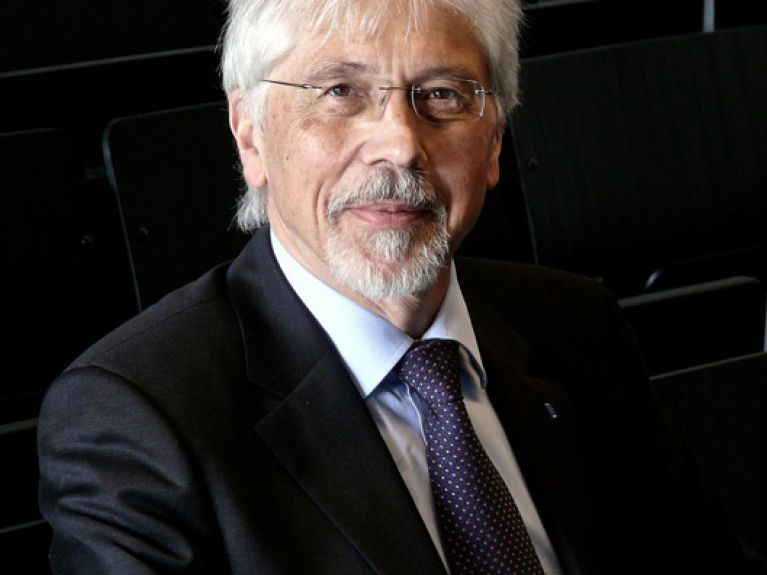100 years of Goethe University Frankfurt am Main
Goethe University Frankfurt am Main celebrates the 100th anniversary of its foundation in 2014. We interviewed its president, Werner Müller-Esterl.

Mr Müller-Esterl, Goethe University Frankfurt am Main was founded 100 years ago. What made it special then?
In 1914 the university pursued new approaches in research and teaching. The liberal spirit of a former free imperial city and trading centre as well as the location of the first German steps towards parliamentary democracy inspired the university founders to try new things, whether it was the establishment of modern departments such as social and natural sciences or the introduction of different forms of organisation and didactics. Internationally renowned thinkers like Franz Oppenheimer, Theodor W. Adorno and Max Horkheimer supported these innovations, which enabled Goethe University to gain worldwide recognition in a very short time: 19 Nobel laureates have studied or worked here since the foundation of the university.
But things did not always go smoothly…
After getting off to an impressive academic start, the university faced financial difficulties during the First World War, and then came the great break of National Socialism. All Jewish professors and staff at Goethe University were dismissed within a very short period of time. That was the end of liberality, internationality and plurality for a time at least.
Where does Goethe University stand today?
Its 100th birthday is a good time not only to take stock and consider how far we have come, but also to look towards the future. Today, after years of renewal, Goethe University is one of Germany’s largest universities with over 46,000 students. Internationally it is again recognised as an extremely strong research university. As a citizens’ university originally founded by local people, Goethe University is deeply rooted in Frankfurt, but nevertheless in 2013 over 40% of newly appointed professors were not holders of German passports. Furthermore, 24% of our students have a migrant background. We are an international university in Germany’s most international city. This positive development must be continued.
What challenges will have to be faced in the future?
Goethe University would like to use this special anniversary to make its liberal roots more visible again. Principles such as modernity, diversity and independence have lost none of their relevance today – they are ideals for which Johann Wolfgang Goethe, the universal genius after whom our university is named, also stands.
Official ceremony for the 100th anniversary of Goethe University on 18 October 2014 in Frankfurt am Main

